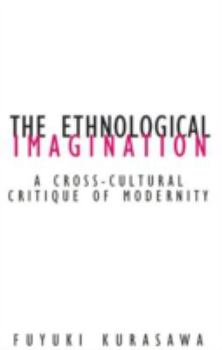The Ethnological Imagination: A Cross-Cultural Critique of Modernity
A significant intervention in contemporary debates about cross-cultural understanding
Fuyuki Kurasawa unearths what he terms "the ethnological imagination," a substantial countercurrent of thought that interprets and contests Western modernity's existing social order through comparison and contrast to a non-Western other. Accordingly, Kurasawa traces and critiques, through this prism of cultural alterity, the writings of some of the key architects of this way of thinking: Jean-Jacques Rousseau, Karl Marx, Max Weber, mile Durkheim, Claude L vi-Strauss, and Michel Foucault.
In the work of these thinkers, Kurasawa finds little justification for two of the most prevalent claims about social theory: the wholesale "postmodern" dismissal of the social-theoretical enterprise because of its supposedly intractable ethnocentrism and imperialism, or, on the other hand, the traditionalist and historicist revival of a canon stripped of its intercultural foundations. Rather, Kurasawa's book defends a cultural perspective that eschews both the false universalism of "end of history" scenarios and the radical particularism embodied in the vision of "the clash of civilizations." It contends that the ethnological imagination can invigorate critical social theory by informing its response to an increasingly multicultural world--a response that calls for a reconsideration of the identity and boundaries of the West as well of modernity itself.Format:Paperback
Language:English
ISBN:0816642400
ISBN13:9780816642403
Release Date:July 2004
Publisher:University of Minnesota Press
Length:249 Pages
Weight:0.80 lbs.
Dimensions:0.6" x 5.9" x 8.9"
Customer Reviews
0 rating





